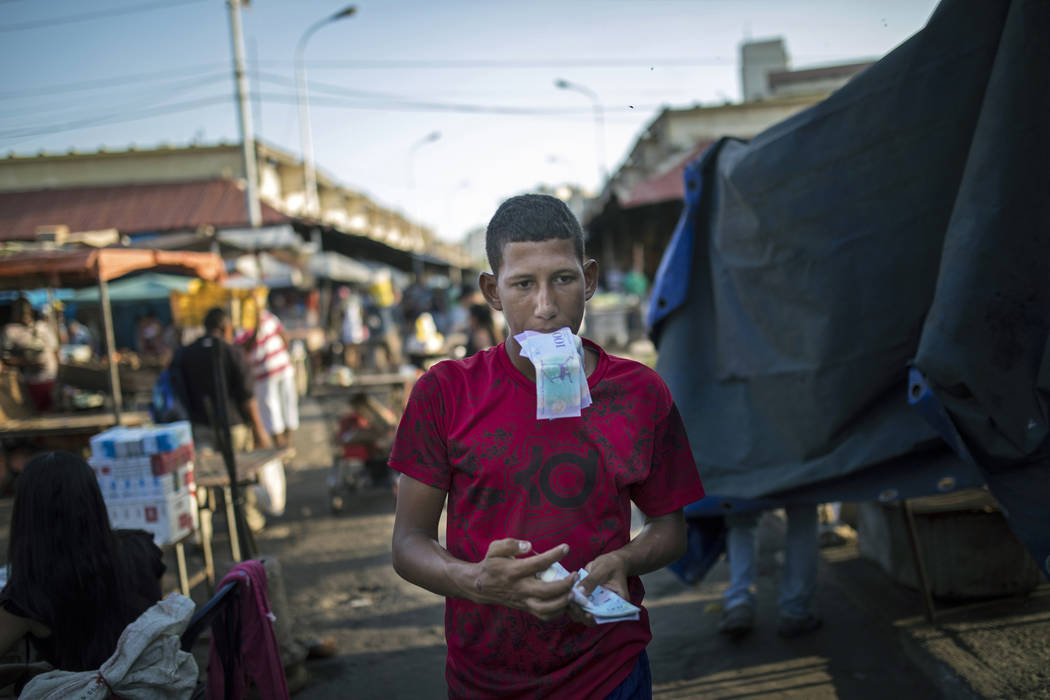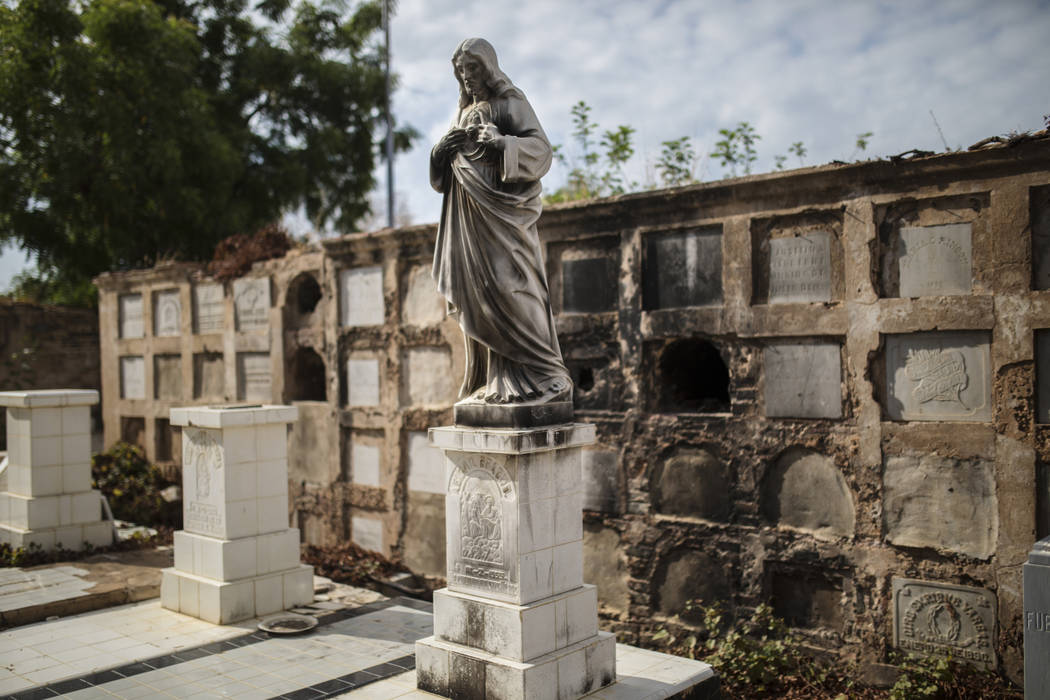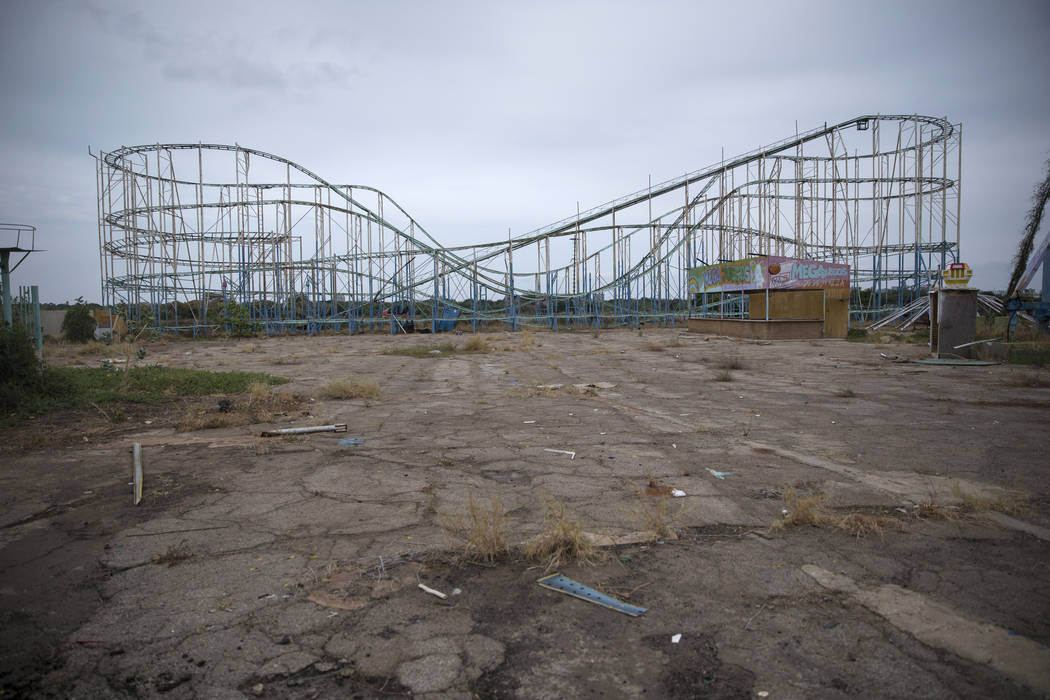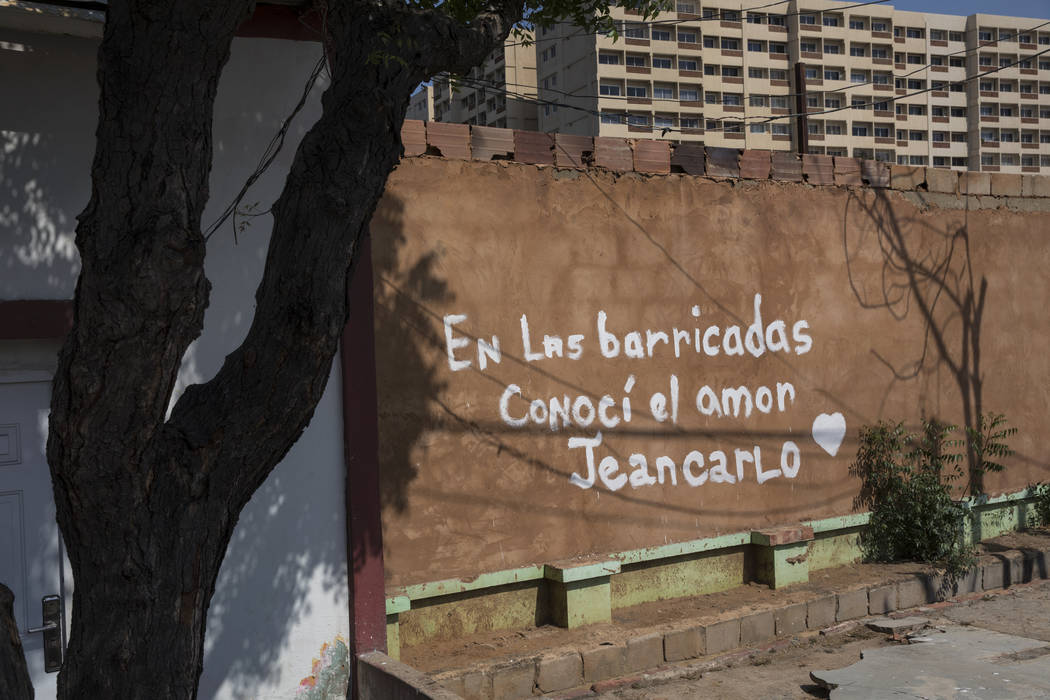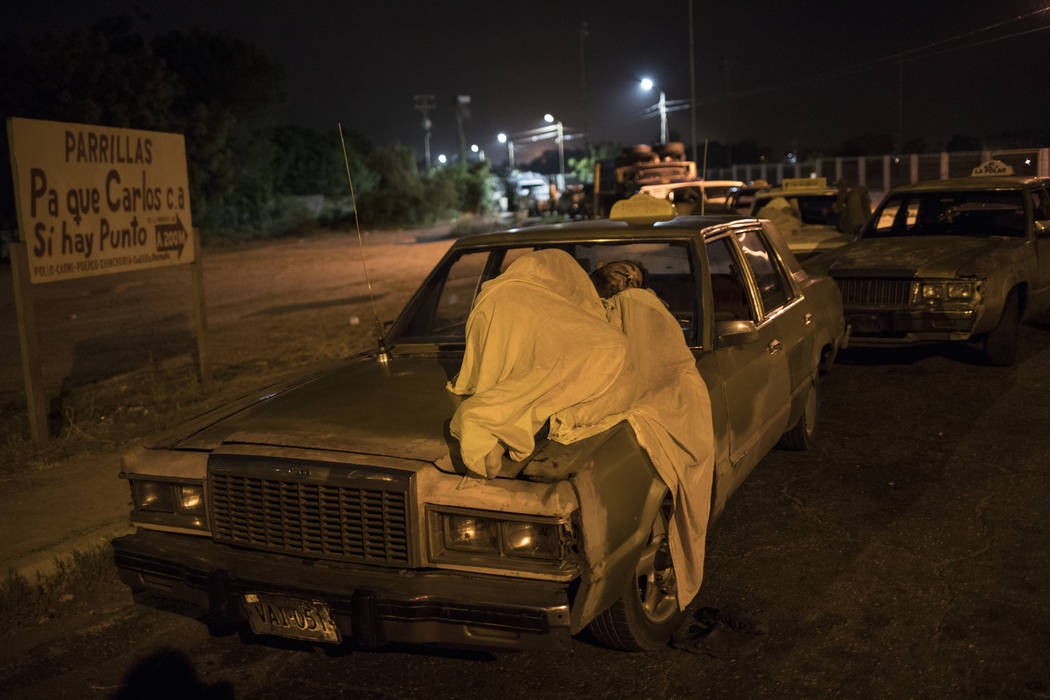Venezuela’s misery doesn’t even spare the dead
MARACAIBO, Venezuela — Even the dead aren’t safe in Maracaibo, a sweltering, suffering city in Venezuela.
Thieves have broken into some of the vaults and coffins in El Cuadrado cemetery since late last year, stealing ornaments and sometimes items from corpses as the country sinks to new depths of deprivation.
“Starting eight months ago, they even took the gold teeth of the dead,” said José Antonio Ferrer, who is in charge of the cemetery, where a prominent doctor, a university director and other local luminaries are buried.
Much of Venezuela is in a state of decay and abandonment, brought on by shortages of things that people need the most: cash, food, water, medicine, power, gasoline.
Some of the most acute misery plays out every day on the streets of Maracaibo, Venezuela’s second-largest city and a hub of the once-booming oil industry. It was here in March that residents, seemingly driven to desperation by nationwide power blackouts, looted and destroyed hundreds of buildings and businesses. Authorities blamed criminals for the rampage, which was of a kind that didn’t happen elsewhere in Venezuela and only quickened the city’s descent.
The destruction in Maracaibo, where blackouts were the norm long before March, defied easy understanding. The fittings of a hotel were torn out or just torn to shreds, leaving the structure littered with debris in an image reminiscent of wartime or the aftermath of a natural disaster.
Maracaibo’s mood today is less furious, more exhausted. Many who have the means leave, joining an exodus of more than 4 million Venezuelans who have left the country in recent years. The city in northwestern Venezuela is close to the border with Colombia, host to more than one-quarter of the migrants.
U.S. gets some blame
The opposition blames Venezuela’s misery on misguided economic policies, mismanagement and corruption by the socialist administration installed by the late Hugo Chavez. President Nicolás Maduro, like Chavez, says the troubles are the result of what he calls an economic war being waged on the country by the United States, which along with about four dozen other nations contends that Maduro’s re-election last year was not legitimate because many strong opposition candidates couldn’t run.
As in other cities, weary drivers nap on top of cars as they wait for scarce gasoline in long lines at service stations. “Operación Libertad” (Freedom Operation) was scrawled in white on the back window of one taxi, a reference to opposition leader Juan Guaidó’s campaign to topple Maduro.
Guaidó visited Maracaibo, an opposition stronghold of 1.5 million people, in April. He was forced to take a boat across Lake Maracaibo to dodge police roadblocks and reach throngs of supporters waiting to hear him speak.
Life drags on
As the political standoff drags on, so does life in Maracaibo.
Some people sift through trash, scavenge for food or hastily fill up buckets when a water truck makes a neighborhood stop. A fisherman makes a catch. A vendor in a market hauls a side of meat — he’ll have to sell it quickly, since perishables go bad quickly without refrigeration in Maracaibo’s suffocating temperatures.
Gushing oil wells that helped make a nation with the world’s largest oil reserves flush with cash have given way to broken-down oil platforms that sit idle as nearby shores are black with oozing crude.
There are vestiges of better days or signs of people carrying on, finding a way forward. Waiters in jackets and ties tend the counter in what used to be a revolving restaurant on the waterfront, even if there are hardly any customers. Boys in the street laugh as they play with a toy car. People move supplies on wheelbarrows.
At a shuttered amusement park, the rusty frame of a rollercoaster sits in isolation.
Ferrer, the man in charge of El Cuadrado cemetery, took over the job from his father after he died, His father, in turn, had inherited the post from his father. The cemetery was founded nearly two centuries ago.
Daily burials used to happen until late afternoon, Ferrer said. But the cemetery now has tightened up on security, only holding burials until noon to deter grave robbers.
———
Associated Press journalist Sheyla Urdaneta contributed to this report.



